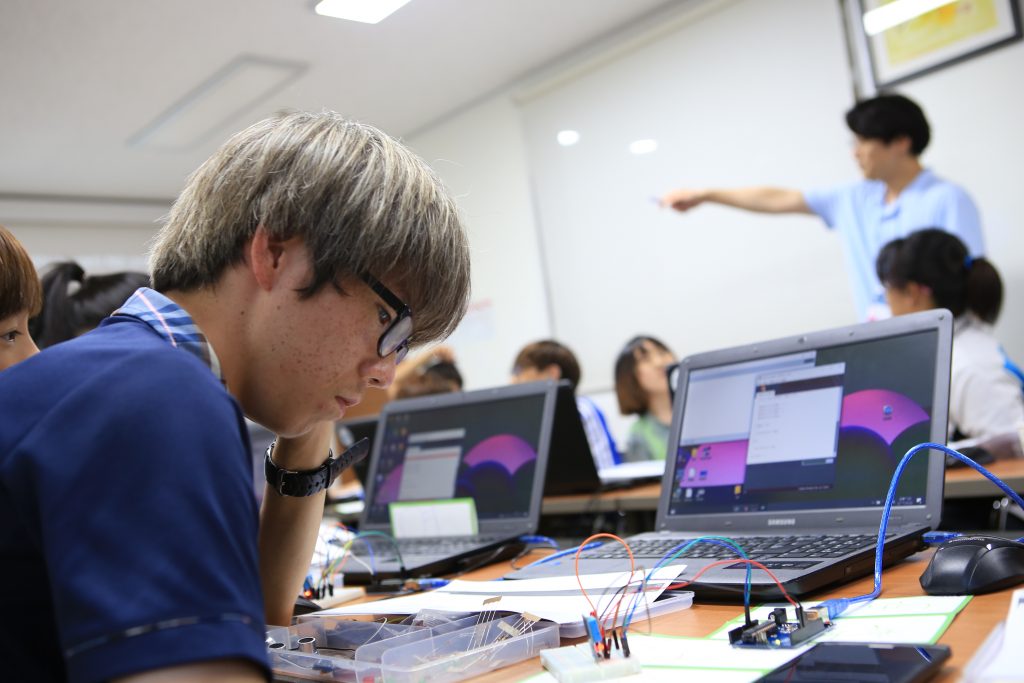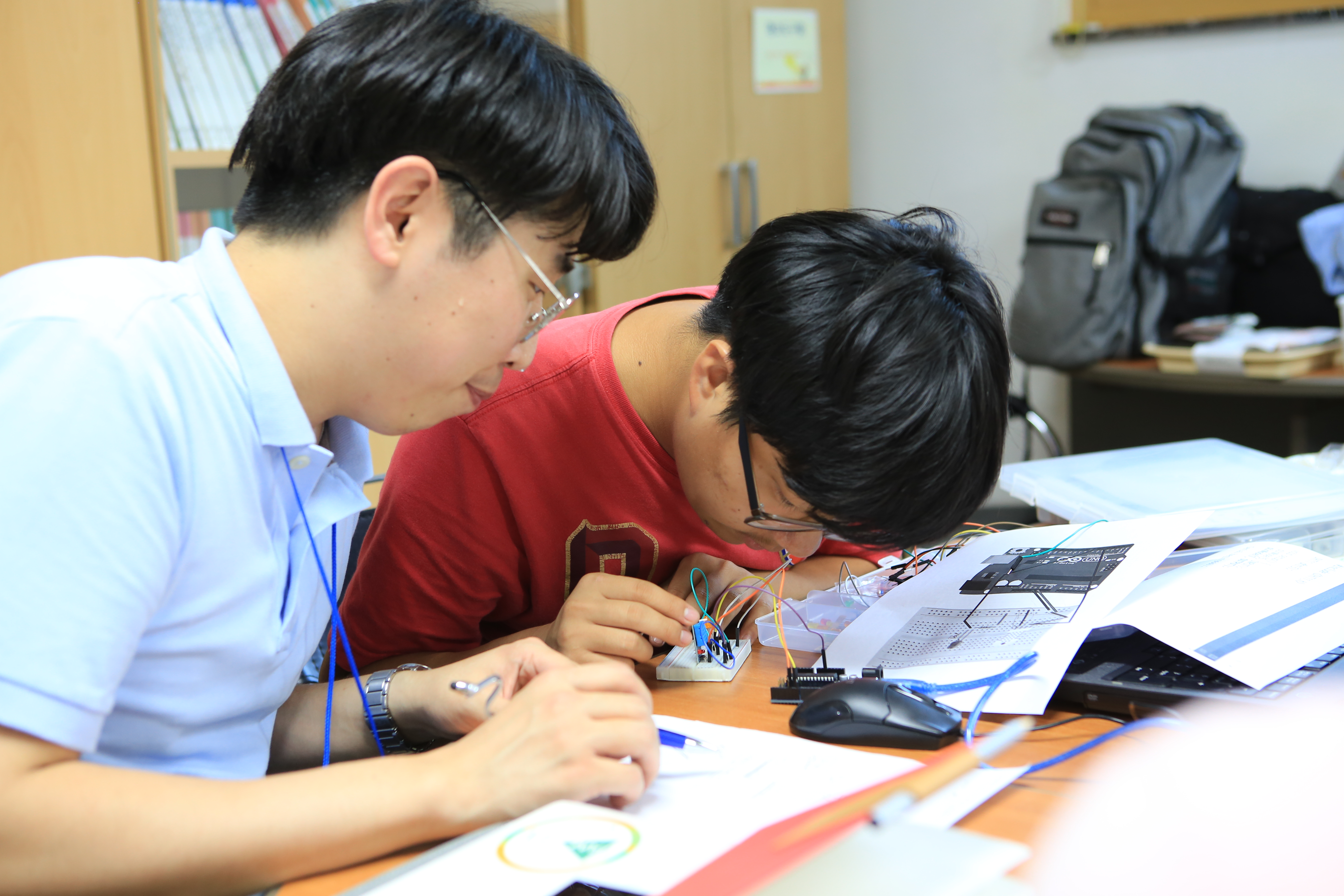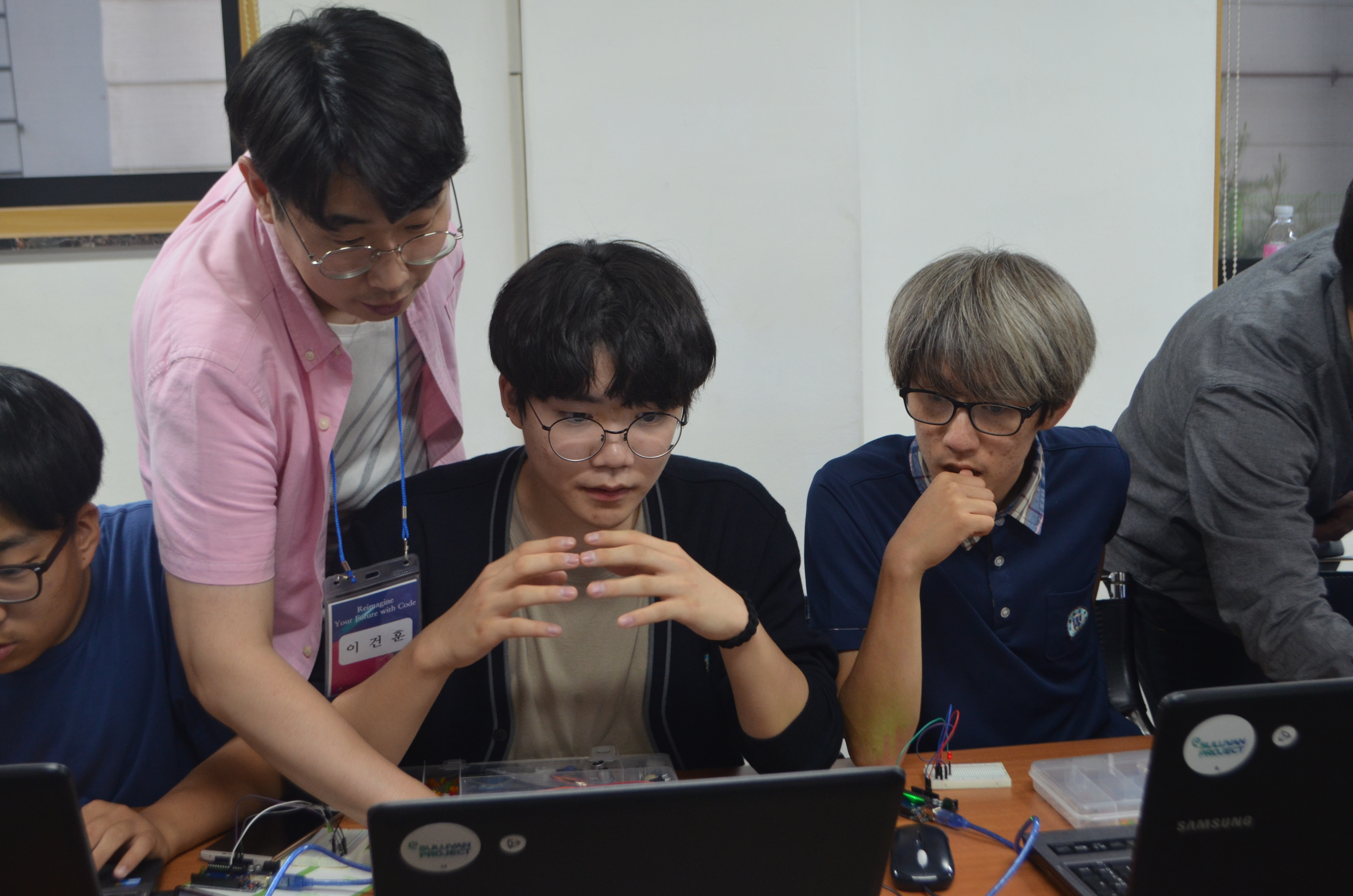
South Korea’s Coding Heroes bring creativity back into the classroom
Already a technological powerhouse, South Korea is banking on a new generation of software education specialists to propel the country into the fourth industrial revolution.
Studying computer science and law, Geon-hoon Lee, 26, is the very poster-child of Korea’s young, computer-savvy workforce.

Earlier this year Geon-hoon Lee joined the “Be a Coding Hero” program, an initiative run by JA Korea, a local nonprofit, with the support of Microsoft Korea. Their mission is to develop creative software education programs that make sure all of Korea’s youth can participate in the new economy.
With the Coding Heroes, Geon-hoon Lee saw a great opportunity to learn about IT issues and software education.
But more importantly, he wanted to give back. That’s because Geon-hoon Lee experienced first-hand how easy it is to fall through the cracks of the fiercely competitive Korean education system.
“I failed my first try at college exams but had no money for private cram schools. I relied on friends and old school teachers to tutor me through the exams.”
“The part about being a coding hero. I don’t expect to turn into some Iron Man but I thought maybe I can help these kids, just like I was helped along.”
This year alone, the Coding Heroes helped along some 3,800 youths at schools and local community centers throughout the country. The programs reached out to youths with disabilities, and youths in underserved areas. They also developed “DigiGirlz” – a popular program that teaches coding and Internet of Things (IoT) skills to girls in middle and high schools.
Geon-hoon Lee’s favorite program was the “CS Unplugged” workshop where kids learned the basics of algorithms and logical reasoning. Instead of stringing along seemingly unending code in English, youths worked on touch and feel “bloc-coding” games that got their creative juices flowing.
The creativity of the students surprised the mentors. “We had students who went beyond the parameters of the games,” smiled Geon-hoon Lee. Students asked for game functions that allowed them to time-travel or to create robots that could live in the sea. “It challenged me to design games that could match the kids’ imagination.”
Earlier this spring, Geon-hoon Lee and the Coding Heroes faced their biggest challenge to date with the Seoul Samsung School for youth with hearing disabilities. They had to introduce text-based coding to youths who couldn’t hear or speak with the mentors.
“First, we really wanted it to be useful to the kids,” explained Sangdae Kim, manager at JA Korea. “So we decided it had to be text-based coding, and teach the real fundamentals.” But knowing most Korean students are turned-off by the English text used in code, he turned to Arduino to add the fun factor. He designed kits that harnessed easy-to-use IoT technology.
“We called it ‘Surviving Mars’,” said Sangdae Kim. Very much inspired by the film, The Martian, the story was that the students were stranded on Mars and they needed to code the Arduino kits in order to survive, flourish, and somehow escape from the planet.
Students were given missions like sending SOS signals, creating adjustable light sensors, and using temperature-humidity sensors to dock off rockets.
The story and the Arduino kit were a hit.
Take for instance Samsung student, Ji-won Kim, 17, who showed little interest in the program at the start. “I was interested in coding but it seemed like an alien language,” he explained.
But the third session was a light-bulb moment for him, both figuratively and literally. Ji-won Kim and his classmates used Arduino to program a light-switch on and off. “It was my most memorable class because I learned the theory and mechanics behind the light-switch, something I took for granted,” said Ji-won Kim. He soon became the “ace” of the class, helping his fellow classmates.

Not all students turned out to be like Ji-won Kim. His friend Tae-yang, 17, was not only deaf but also had vision impairment problems. The mentors noticed that he was very eager at the beginning but by the third session, he had totally lost interest. “We discovered that he had trouble reading the online lecture messages and later we found out he couldn’t even read the alphabet,” said Sangdae Kim, manager at JA Korea.
What Tae-yang needed weren’t high-tech gadgets, it was old-fashioned care and attention.
Geon-hoon Lee became Tae-yang’s personal tutor, sitting beside him, writing by hand the lecture notes from the instructors, and making sure he inserted the correct jumper wires into the tiny holes of the Arduino breadboard.
“Our classes would end around 8pm but it’d take another hour for Tae-yang to finish,” said Geon-hoon Lee. “But once he finished, he would flash this huge grin and laugh and high-five all the mentors.”
“I know that we didn’t complete all of the curriculum because of kids like Tae-yang.” Geon-hoon Lee continued, “It made me think about what education really means. Most schools are about teaching lessons and moving on. It just makes the smart students race ahead.”
“Instead of packing in more information, it was more important to us that every single student got to finish the mission. That’s what made it a success for us.”
Discover our free resources to empower all young people through computer science education and digital skills by visiting http://microsoft.com/digitalskills
To read more about Microsoft Philanthropies’ work to build future ready generations in Asia, click here.













